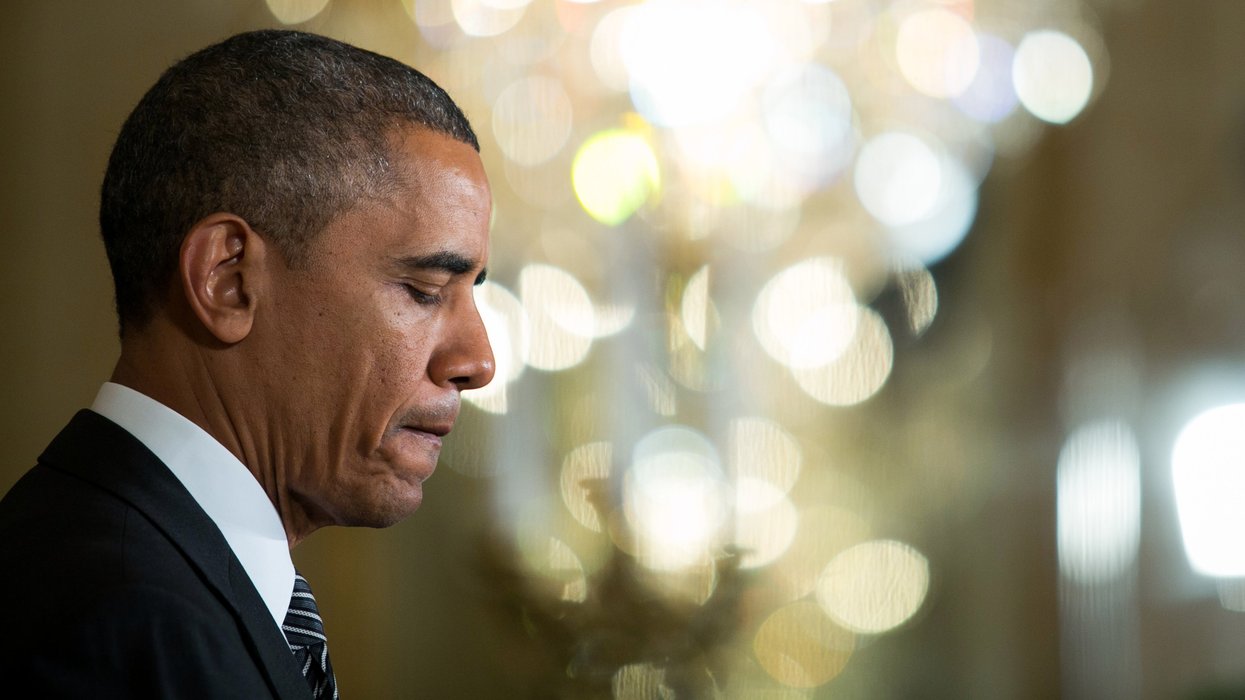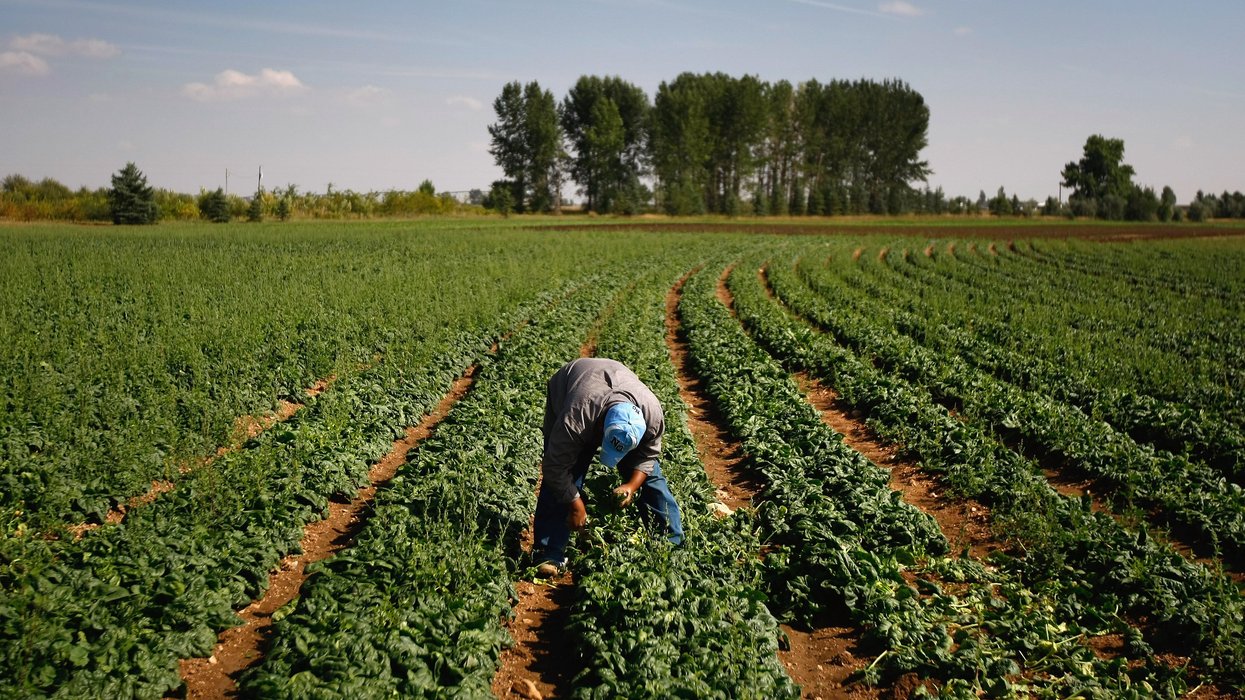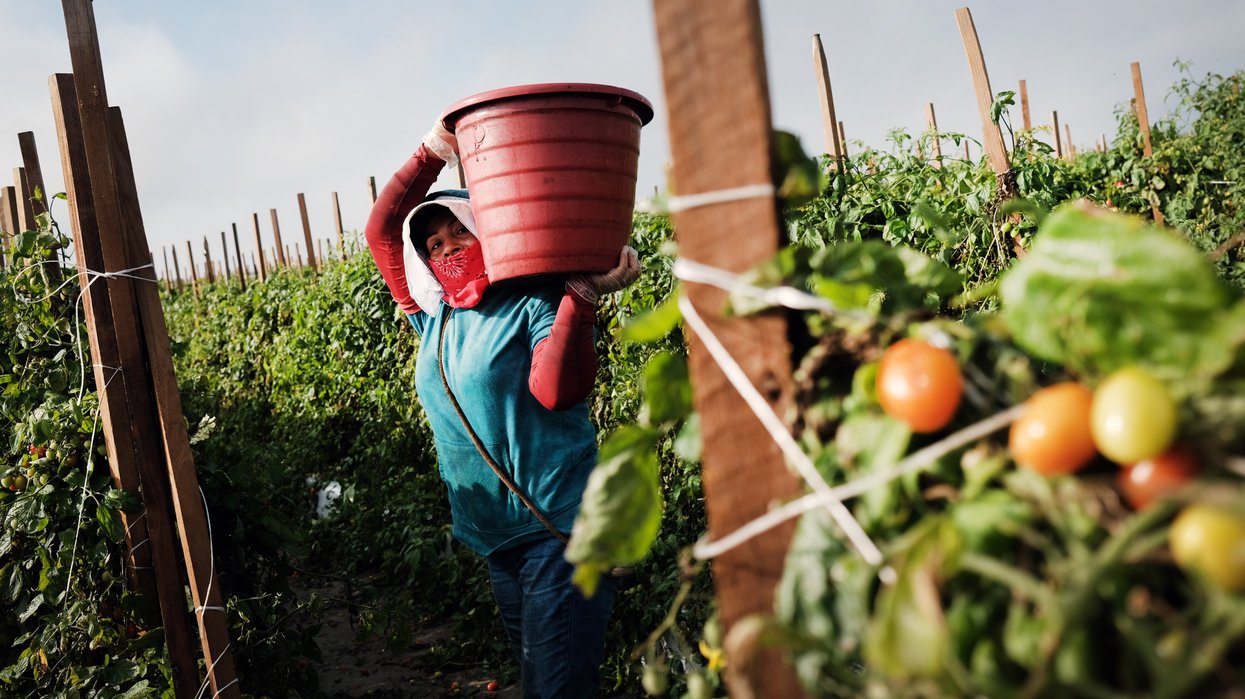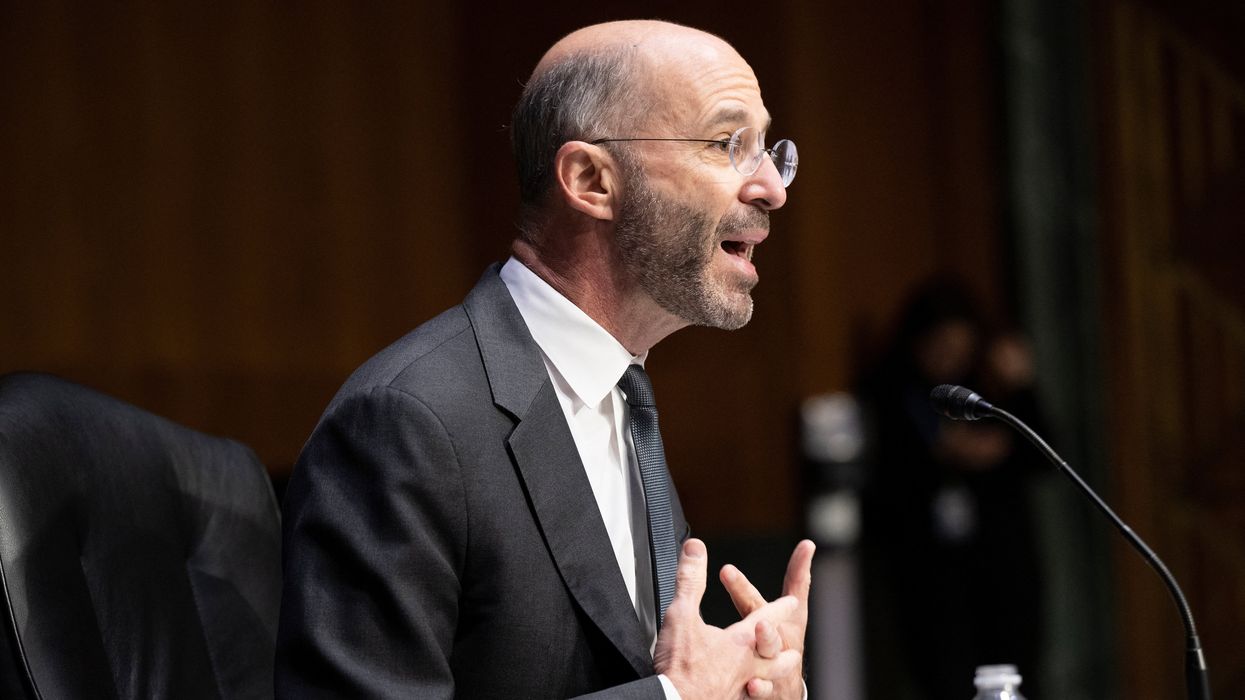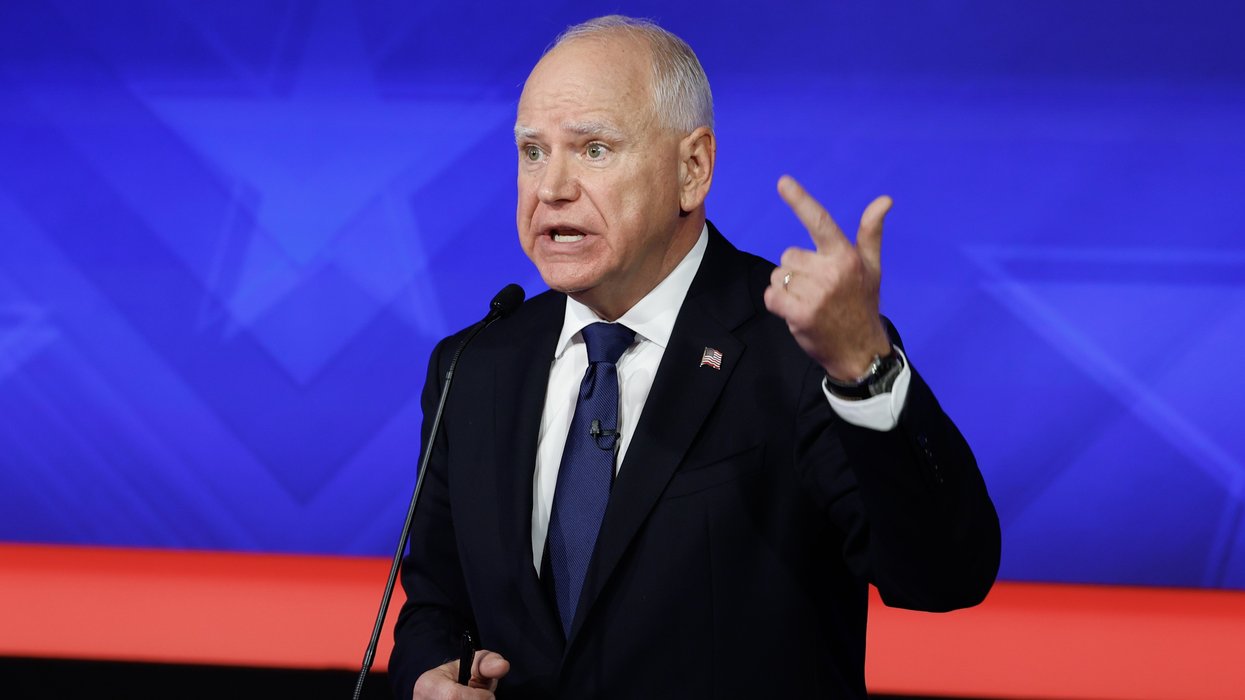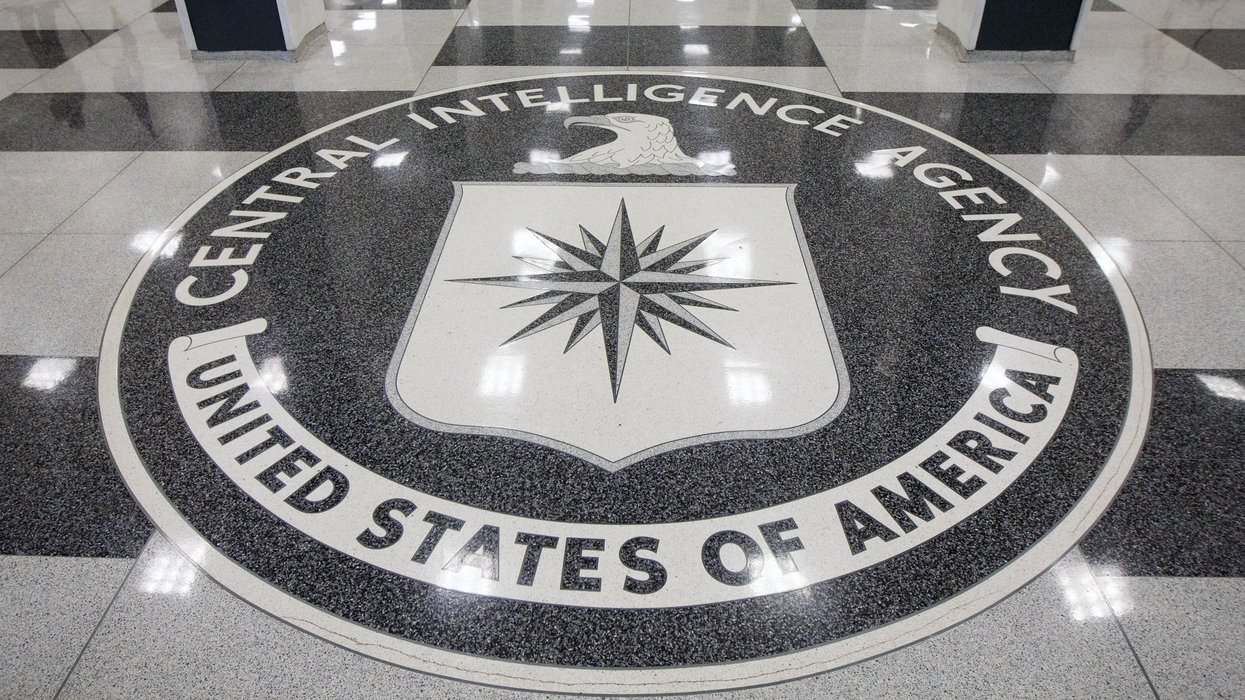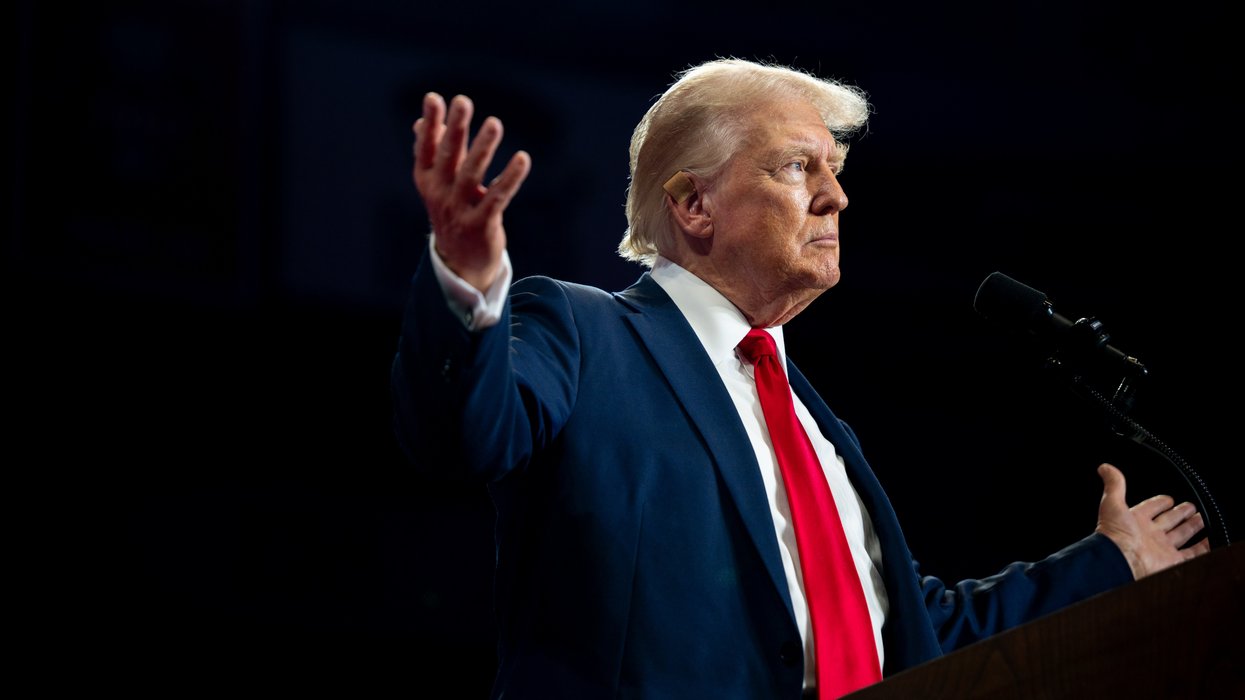Dylann Roof wanted to start a race war when he shot the church in Charleston, SC, but he picked the wrong city and the wrong people. The people are rallying together, and prayers are pouring in from all over the country. Glenn and some of his friends flew to Charleston to pray for the community and provide comfort. On the way there, they discussed the dangers of "depraved indifference", and why people must stand together now in opposition to the hate that led to this attack.
Below is a rush transcript of this segment:
GLENN: From Charleston, South Carolina, in WSC radio. Hello. And welcome to the Glenn Beck program. We're glad that you've joined us today. I got up in New York at about 4 o'clock this morning. It was about 11:00 or 10 o'clock that we finally found where we would be gathering today in Charleston, South Carolina.
Yesterday, when we spoke, I said, I just felt that I needed to be in South Carolina. I needed to be in Charleston. If you felt that way, join me in Charleston today. And all day we looked for a place -- and we had one early in the morning. We were ready to announce it. There was a bomb threat. And the city went kind of in lockdown. And things went nuts again in the city. And they're struggling with so much.
And they wanted to put us into -- they wanted to put us into an arena away from the church. And I finally said last night, you know, let's just gather. Let's just meet in a park. Let's just come together. Hold each other's hands. Hold each other's arms up. And pray together.
Well, this morning, I got up at about 4 o'clock. And I checked my Facebook page, and I checked the email. And there were people coming from California, from Texas, Nevada, Utah, coming from all up and down the eastern seaboard. From Florida, from Atlanta, from Kentucky, Ohio, Missouri. I don't know if there's going to be 25 people here or 250 people. I don't know. And I saw all of that, and it really was Field of Dreams: If you build it, they will come. And then I realized, but I didn't build a baseball diamond. I don't know what game we're supposed to be playing here. I don't have a baseball bat, and I don't have a diamond. I don't know what we're supposed to do.
And I got on my knees this morning and prayed that at some point an answer would come of, okay, well, now we're here together, what is it we're supposed to do? And I think the answer is just love each other. As we arrived here in Charleston this morning early, I was overwhelmed with a kindness and how somber everybody is, but yet determined.
This is not Baltimore. This is not Ferguson. This is not -- this is unlike anything we've seen since I think September 11th. You know, how September 11th happened. The next day we gathered today. And we all stood together to give blood, even though there wasn't any need for blood. But we stood together. And we let the people in Pennsylvania know that we love them. We let the people know at the Pentagon that we loved them. That we were all New Yorkers that day. And just for that brief moment of time, America became her better self.
It's found out now that the shooter, Dylann Roof, the killer wanted to start a race war. What a sad disappointment he has now, knowing that no race war is going to start.
He picked the wrong city. He picked the wrong people. If that's what you're trying to start, you don't -- you don't pick a fight with a place called the Holy City. You don't -- you don't pick a city where the highest points in the sky are not skyscrapers, but church steeples. As I was walking around New York the last couple of days, I'm always -- I'm always in awe of the Manhattan skyline. I'm always in awe -- just, I walk down the street. And I look at some of these buildings, I was standing in front of our hotel this morning. And I was talking to Rabbi Kula who has joined us and some other people that joined us, and I said, look at this building. And I told the history of the building. Bored him to tears. But as I told him the history of the building, I am so -- I love what man has done on that island. But at night, when I walked by myself or in the morning as I was walking in the park, I looked up and I couldn't see anything but the glow of the city. So I am never marveling at what God has done. I can't see the stars. I can rarely see the sun. I can't see the moon. Sometimes you see the clouds, but that's it.
You're only really allowed to look up and see what man has done. And you lose your place. In a small town like Charleston, you still look up. It's not a sea of skyscrapers. The highest points in the sky are the church steeples. So as you look up, you see what man is doing, praising God. And you can still see the stars and the sun and the moon and all of his creations.
And I think it keeps you rooted.
This is not the 1860s, and it's not the 1960s. And this is a town that's not going to be dragged back down into it. This is a town that knows who she is.
Do we have problems with people? Yeah. We have race problems all around the country. Was this guy a bad racist? You bet he was. Did people know about it? Yes, they did.
His roommate knew for six months that he was planning something like this. Those were his words. Something like this. Wanted to start a race war or a civil war. Now, think of that. You're 20, 21 years old, and you have a friend, a roommate who is carrying a gun, who you think may be a little off. Who wants to start a civil war, who wants to start a race war, and you don't say anything.
It's not enough to get away from him. It's not enough to ignore.
As we were on the plane today, we talked about that story. And because we didn't have any Wi-Fi on the plane, we -- we grappled with what it was. Is that depraved indifference?
I think it is. Depraved indifference. Your indifference is so deep, that you do nothing. You know what's coming. You know what somebody is going to do. You hear them. But you do nothing. What this man did when he walked into the church, it was depraved. What his friends did, who knew that it was coming is equally as depraved.
As we -- as we landed and our Wi-Fi started to work, we looked up depraved indifference. It's a legal term. And you couldn't charge his roommate with depraved indifference. It's not depraved indifference.
However, may I ask, are we citizens of the United States, or are we citizens of another kingdom? Do we lose our first citizenship by merely obeying the laws of our second citizenship? Do we -- has our second citizenship overtaken and trumped everything of our first citizenship, to the point where we do nothing because we're afraid of the law. We're afraid that somebody's going to be offended. We don't know what to do. Let's call somebody else because, as we learned in the 1970s, because that's when this term first began, you call a first responder. You call a first responder. No, no. Your citizenship, your first citizenship makes you the first responder.
The police, they're the second responders. You're the first. You're the first and really sometimes last line of defense. If you hear somebody saying things like that, you report it.
This week, I was on with Howard Stern. And he brought up the suicide of my mother. And we started talking about that. And he said, you know, there was a press report a few years ago that somebody said it wasn't a suicide. I said, you know, Howard, I didn't even respond to that. Because, A, how dare you start to investigate something -- my mother's death from 1979. You actually spent the time just to discredit me, you started going through the death records and the police reports of my mother's death from 1979, that's ghoulish. It's fiendish. It's cynical. It's sick.
But let me tell you how I know. My mother left a note. And more importantly, something that we hadn't talked about. We never talked about until the press started to say it. She went to my aunt, the Sunday before, and she said, you know, Joanne, I'm going to kill myself. I can't do it anymore. Well, my aunt had heard that many times. My grandmother heard that many times. They had offered help. They had begged her for help. They had done everything they could, except call and have her committed.
I'm going to end it. This week, I'm going to end it. Now, what did my aunt have to live through? What was she carrying around? She took it seriously, but not seriously enough. Because she had heard it before over and over again. And nobody does that. Because this was the first suicide in my family. We've had two suicides in my family. This was the first time it had happened. And believe me, I know. When somebody says, hey, I'm thinking about killing myself, you take action.
Well, I know. But they're my friend. And I don't want to -- no, no, no. You take action. You watch them. You get them to a hospital. You get them to a doctor. You get them to call a suicide prevention line. You don't just say that.
And if you do say that and your friend rejects you and says, hey, thanks a lot for telling everybody. Thanks a lot for calling the cops.
I'm your friend! I'm your friend. I'm your family member. That's what I'm supposed to do because I'm the first responder.
I love you, and if you hate me because I tried to save your life because you said you're going to throw it away, then you can hate me. I love you.
Now, how does this roommate feel today?
I asked this morning when I got here to WSC, has anybody heard from the parents? This is the Amish moment. The Amish mourn together. The Amish -- when the truck driver came in and shot all of the schoolchildren in the Amish school and everybody was raising money for the Amish, the Amish that day went and mourned with the killer's family. Begged them to stay in the community. Please don't move away. We don't hate you. We love you.
Has anybody reached out to the killer's family? I don't know the answer. The people I've asked don't know the afternoons. I'm guessing the media has. How do you feel? How do you feel? What did you think? What did you know? When did you know it? And when they say how do you feel, they don't mean that. They want a juicy story. How do they feel? How would you feel?
Your son looks the way he does in the pictures. And everybody in America says, how did you not know? Look at that picture.
Perhaps because we all struggle with our children. Because perhaps all of our children go through phases and none of us can accept that our children would be so crazy that we would -- that we would raise somebody that could do something so evil.
Hindsight is 20/20. Is it the parents' fault? By the way, he bought the gun. The parents didn't give him the gun. He took money that the parents gave him, and he bought the gun. This is just another way to demonize the family. Did you know? Look at that. Look at the culture in the South. Look at these gun lovers, giving their kid who looks like that, a gun.
No. They gave him money. They were estranged. Imagine your son -- have you ever been asked for money? I remember the time that I was on the street, and I think Stu you were with me on the street of New York. And there was a woman who looked like she was strung out on heroin, and I mean badly strung out. She was shaking. She was crying. It was one of the most incredible things I've seen in my life. And I stopped on the streets of New York, which you don't do, and I got down on my hands and knees on the streets of New York, which you definitely don't do. And I talked to her.
How can I help you? Can I get you to a hospital? What can I do?
She was beyond strung out. I gave her money. Everybody mocked me and made fun of me. How could you do that? Because I felt like I had to do something.
A month later, we found out, she was a scam artist. She was making like $90,000 a year just doing that. She was like an actress.
We don't know what's real and what's not. But once we allow somebody else to rule our heart, once we allow somebody else to take care of our problems, once we allow our second citizenship to overrule our first citizenship, we're done.
Today is the day we worry about our first citizenship. And today is the day that at 2 o'clock, I'm going to be here in Charleston, South Carolina, in the town square, just right by the church. What's it called? Marion Square, by the statue of John Calhoun. And we're just going to meet as friends. We don't have a permit. We're not going to do anything. There's no stage. There's no microphone. It's just friends gathering together. We're going to walk to the church, and we're going to pray together. We're going to hold people's hands and hold people's hearts up. And I invite you to join us.




